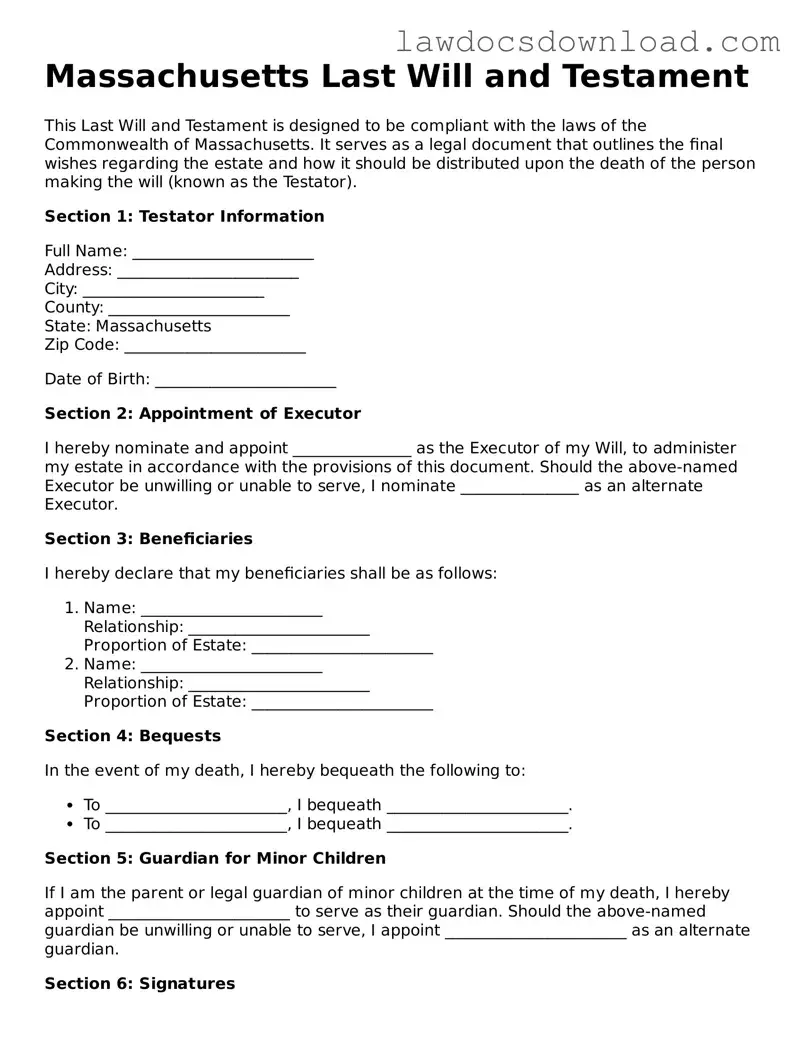Legal Massachusetts Last Will and Testament Form
The Massachusetts Last Will and Testament form is a legal document that allows an individual to dictate how their possessions, assets, and care for minor children should be managed upon their death. It ensures a person's final wishes are honored and legally protected. Without this crucial document, state laws will determine how an estate is divided, possibly against the decedent's desires.
Launch Last Will and Testament Editor Here

Legal Massachusetts Last Will and Testament Form
Launch Last Will and Testament Editor Here

Launch Last Will and Testament Editor Here
or
Free Last Will and Testament
Get this form done in minutes
Complete your Last Will and Testament online and download the final PDF.